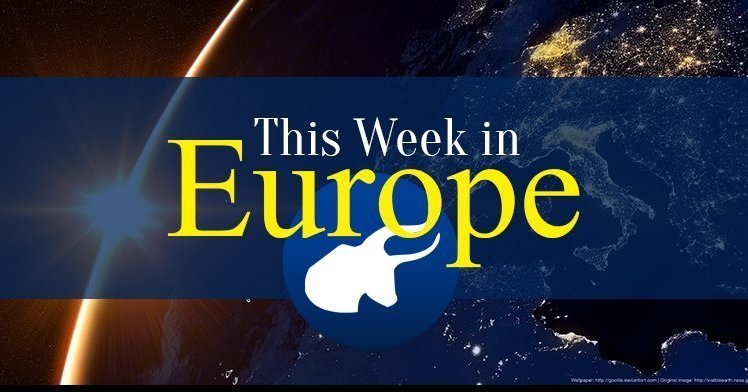First female chancellor for Austria as interim government takes power
Brigitte Bierlein has been appointed as Austria’s first female Chancellor after the Kurz government was voted out of power by the Austrian Parliament. A breakdown in the coalition between the right-wing ÖVP and the far-right FPÖ, led to the success of a no confidence vote against the Kurz government. With elections scheduled for September, Austrian lawmakers appointed a technocratic government to serve as a caretaker until the new vote. Bierlein, the head of the country’s constitutional court, was chosen after the Austrian President led consultations with the three main parties.
European Commission recommends membership talks for Albania and North Macedonia
In its annual report on the progress of reforms in the Western Balkans, the European Commission praised the advances made by Albania and North Macedonia and recommended the Council to approve the start of accession talks with these states. Currently both are only candidate countries, while Montenegro and Serbia have already opened accession negotiations. Moving Albania and North Macedonia onto accession talks will require the unanimous approval of the Council. Currently France and the Netherlands are both likely to oppose the move. Enlargement policy and the process of joining the EU forms a key part of the EU’s soft power in non-EU European countries, helping to promote reforms in line with Western democratic norms and exporting the EU’s values.
Trump backs prominent Brexiteer
In an interview with a major British newspaper, Donald Trump that he considered prominent Brexiteer Boris Johnson as a ‘friend’. Though not a direct endorsement, many have taken this as a reflection of Trump’s preference for Johnson to become the next leader of the Conservative Party and, as a direct consequence, the next UK Prime Minister. Johnson was one of the lead figures of the Vote Leave campaign and played a big role in bringing the idea of Brexit into the political mainstream after being exclusively the project of the far-right and far-left. As well as Johnson, Trump also listed far-right populist Nigel Farage as a ‘friend’. Whether these associations will be helpful to Johnson in his campaign to become the UK’s next Prime Minister is highly debatable as Trump is overwhelmingly unpopular in the country. On Wednesday, a British judge also ruled that Johnson will face the court over his claims that the United Kingdom pays £350 million per week to the EU.
Five-Star Movement keeps Di Maio as its leader
Members of the Italian 5 Star Movement (M5S) overwhelmingly voted to keep current leader and Italian Deputy Prime Minister, Luigi Di Maio, as the head of the party. M5S has been falling in the polls almost continuously since it entered into government with Lega, losing supporters to the much more media-hungry Salvini. The score of 17% in the European elections, a new low for M5S, prompted Di Maio to call for a vote on his leadership. In the end over 50,000 members voted on the party’s online platform, with 80% supporting Di Maio. The breathing room for their leader will do little to help the party’s failing popularity with voters however, especially as they can now ill-afford to be too assertive with Lega, knowing that fresh elections would almost certainly result in a defeat for M5S.
Romania’s strongman sentenced to jail
Liviu Dragnea, the president of the Chamber of Deputies in Romania’s Parliament and party leader of the ruling Social Democrats was sentenced this week to three and a half years in prison. The case, blocked and delayed several times, involved state money for employees that were actually doing work for the party. In 24 hours, PSD lost the European elections - dropping from 45% to 22% - and had its leader sentenced to jail, sending the party into a series of infighting and controversies. Dragnea was the most powerful Romanian politician and his sentence creates a vacuum in PSD and in Romanian politics. The opposition, on the other hand, saluted the sentence as an opportunity for ridding the country of corruption.
Italy kicks out Bannon’s Institute for not paying rent
This week, Italy’s Culture Ministry decided to revoke the lease for a monastery given to Dignitatis Humanae Institute, a right-wing Catholic institute associated with Steve Bannon, former head of Breitbart and former chief strategist to Donald Trump. According to Italian authorities, the institute failed to pay the concession fee and to cover maintenance obligations. About 70 kilometers from Rome, the institute was supposed to bring together populist movements from across Europe, despite opposition from the local Cardinal and church officials, who wanted an apolitical Catholic study and training center. The DHI, in turn, vowed to fight the decision.
Far-right makes gains in Belgian elections
Last Sunday, Belgium had three sets of elections - regional, national and European. In all three, the far-right party Vlaams Belang scored big, while PM Charles Michel’s party suffered losses. The Dutch-speaking Flanders region entrusted about 20% of the votes to the far-right (a 14% increase since the last elections). The right-wing New Flemish Alliance remained at the top with about 28% of votes. In the French-speaking Wallonia region, the Reformist Movement and the Socialist Party remain neck and neck at around 23%, followed by the greens with 21%. At the same time, the far-left Workers Party scored about 8% of votes nationally.
Irish referendum eases divorce requirements
Also last Sunday, at the same time with the European elections, Ireland organized a referendum intended to amend the constitution’s rules on divorce. More than 82% of voters supported the liberalization of divorce rules. The strongly Catholic country only legalized divorce in 1995, and in recent years it has seen a strong progressive push - allowing same-sex marriage in a 2015 referendum and repealing an abortion ban last year. The government is expected to introduce legislation cutting the legal separation period before the divorce from 4 years to 2.


Follow the comments: |
|
